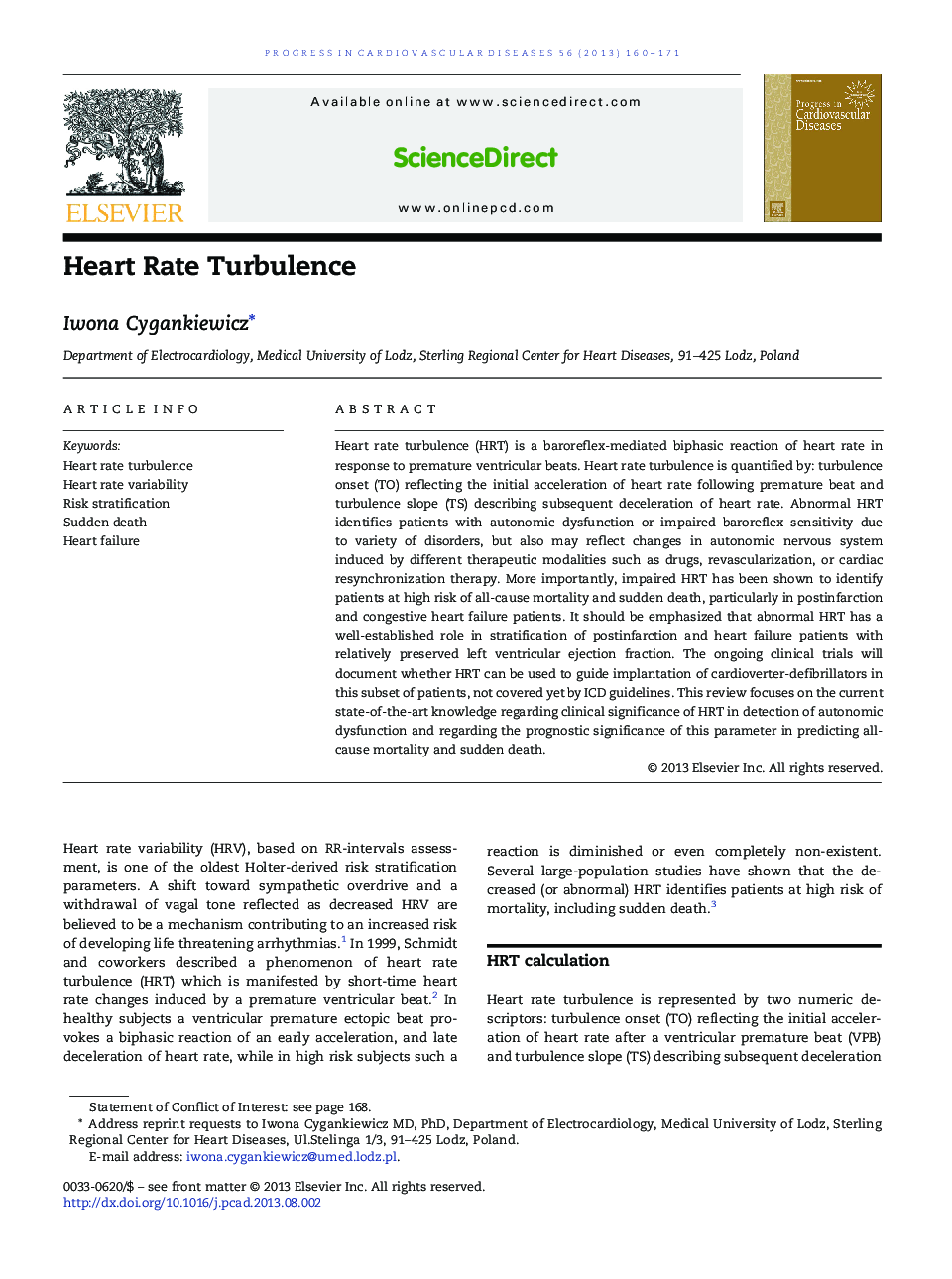| Article ID | Journal | Published Year | Pages | File Type |
|---|---|---|---|---|
| 3006404 | Progress in Cardiovascular Diseases | 2013 | 12 Pages |
Heart rate turbulence (HRT) is a baroreflex-mediated biphasic reaction of heart rate in response to premature ventricular beats. Heart rate turbulence is quantified by: turbulence onset (TO) reflecting the initial acceleration of heart rate following premature beat and turbulence slope (TS) describing subsequent deceleration of heart rate. Abnormal HRT identifies patients with autonomic dysfunction or impaired baroreflex sensitivity due to variety of disorders, but also may reflect changes in autonomic nervous system induced by different therapeutic modalities such as drugs, revascularization, or cardiac resynchronization therapy. More importantly, impaired HRT has been shown to identify patients at high risk of all-cause mortality and sudden death, particularly in postinfarction and congestive heart failure patients. It should be emphasized that abnormal HRT has a well-established role in stratification of postinfarction and heart failure patients with relatively preserved left ventricular ejection fraction. The ongoing clinical trials will document whether HRT can be used to guide implantation of cardioverter-defibrillators in this subset of patients, not covered yet by ICD guidelines. This review focuses on the current state-of-the-art knowledge regarding clinical significance of HRT in detection of autonomic dysfunction and regarding the prognostic significance of this parameter in predicting all-cause mortality and sudden death.
